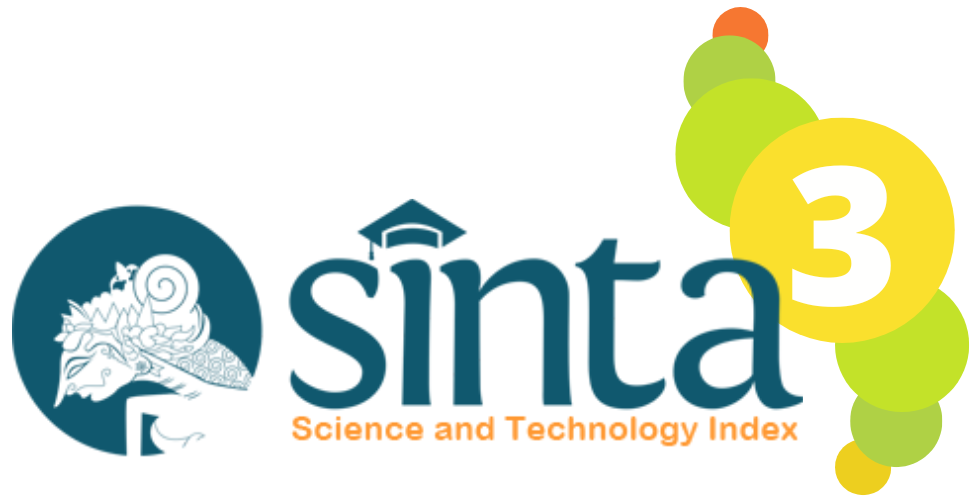Pragmatic Awareness in EFL Context: An Assessment on English Literature Students
Sari
The purpose of the research was to explore students’ pragmatic awareness and their ability in recognizing grammatical and pragmatic problematic scenarios. There were 25 B2 level students of English Literature study program participated in the study. All students were in their forth year of study and have completed Pragmatics course. The participants were asked to read 15 scenarios of judgment task and to decide whether the given scenarios presented pragmatic or grammatical problem or were unproblematic. The result revealed that the participants were better in recognizing pragmatic problems, followed by the identification of unproblematic scenarios and lastly, participants’ were weakest at recognizing grammatical errors.
Kata Kunci
Teks Lengkap:
PDFReferensi
Almekhlafi, Abdo & Perur Nagaratnam, Ramani. (2011). Difficulties in Teaching and Learning Grammar in an EFL Context. Journal of International Instruction. 4. 69-92.
Bardoviâ€ÂHarlig, K., & Dörnyei, Z. (1998). Do language learners recognize pragmatic violations? Pragmatic versus grammatical awareness in instructed L2 learning. Tesol Quarterly, 32(2), 233-259.
Bardovi-Harlig, K. (2013), Developing L2 Pragmatics. Language Learning, 63: 68-86. https://doi.org/10.1111/j.1467-9922.2012.00738.x
Choraih, M. A., Loutfi, A., & Mansoor, A. (2016). The importance of pragmatic competence in the EFL curriculum: Application and implications. In Arab World English Journal, December 2016 ASELS Annual Conference Proceedings.
Glaser, K. (2020). Assessing the L2 pragmatic awareness of non-native EFL teacher candidates: Is spotting a problem enough? Lodz Papers in Pragmatics, 16(1), 33–65. https://doi.org/10.1515/lpp-2020-0003
House, J. (1996). Developing pragmatic fluency in English as a foreign language: Routines and metapragmatic awareness. Studies in second language acquisition, 18(2), 225-252.
Hussein, N. O., Albakri, I. S. M. A., & Seng, G. H. (2019). Pragmatic Competence and Activity-Based Language Teaching: Importance of Teaching Communicative Functions in Iraq EFL Context. International Journal of English Literature and Social Sciences, 4(6), 1655–1660. https://doi.org/10.22161/ijels.46.5
Ibrahim, A., & Maniam, M. (2020). A Review Article of the Pragmatics-Based-Curriculum in EFL Context: Focus on the Curriculum in Iraq. Budapest International Research and Critics in Linguistics and Education (BirLE) Journal, 3(2), 1065-1073.
Niezgoda, Kimberly & Carsten Roever. 2001. Pragmatic and grammatical awareness: Afunction of the learning environment? In Kenneth Rose & Gabriele Kasper (eds.), Pragmatics in language teaching, 63–79. Cambridge: Cambridge University Press.
Peterson, E. & Coltrane, B. 2003. Culture in Second Language Learning. Center for Applied Linguistics. Retrieved from: https://eclass.upatras.gr/modules/document/file.php/PDE1439/Culture%20in%20Second %20Language%20Teaching.pdf
Rianita, Dian. (2017). Cross-Cultural Pragmatics and Its Challenges in EFL context. 10.31227/osf.io/dcgyk.
Saadatmandi, Marzieh & Modarres Khiabani, Shahram & Pourdana, Natasha. (2018). Teaching English Pragmatic Features in EFL Context: A Focus on Request Speech Acts. Theory and Practice in Language Studies. 8. 829. 10.17507/tpls.0807.14.
Samaie, M., & Arianmanesh, M. (2018). Comprehension of conversational implicature in an Iranian EFL context: A validation study. Journal of Language and Linguistic Studies, 14, 44-62.
DOI: https://doi.org/10.33387/j.edu.v21i1.5908
Refbacks
- Saat ini tidak ada refbacks.
| Journal Name | Jurnal Edukasi |
| Print ISSN | 1978-6115 |
| Elektronik ISSN | 2597-9213 |
| Publisher | Fakultas Keguruan dan Ilmu Pendidikan (FKIP) Universitas Khairun |
| Address | Jalan Bandara Sultan Baabullah Kampus I Unkhair, Kelurahan Akehuda, 97728 Kecamatan Kota Ternate Utara, Provinsi Maluku Utara |
| Country | Indonesia |
| j.edukasi@unkhair.ac.id / edukasi2019@gmail.com | |
| URL | https://ejournal.unkhair.ac.id/index.php/edu/index |
| DOI | http://doi.org/10.33387/edu |
Indexed By:
-----------------------------------------------------------------------------------------------------------------------------------------------------------------------------

EDUKASI is licensed under a‚ Creative Commons Attribution-NonCommercial 4.0 International License.












